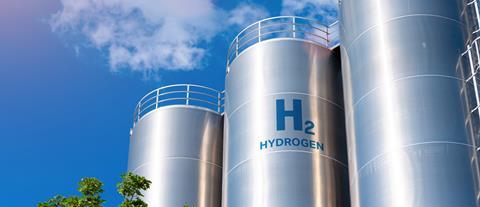The United States Department of Energy (DOE) has granted $48 million to fund 16 research and development projects aimed at advancing hydrogen technology. The primary focus of these projects is to enhance the storage and refueling of liquid hydrogen, with a specific emphasis on its application in vehicles.

The largest share of funding, totaling $17.7 million, has been allocated to three projects dedicated to studying liquid Hydrogen fuelling and transfer systems. Among them, GTI Energy, based in Illinois, received $6 million for the development of a mobile liquid hydrogen fuelling station. Linde, an industrial gases company, was awarded $5.7 million to work on high-rate liquid hydrogen fuelling for rail applications. The Colorado School of Mines secured $6 million for the development and deployment of a solid-state hydrogen loss recovery system, with the ambitious goal of capturing 80% of the “boil-off” that occurs during liquid hydrogen transfers.
Liquid hydrogen, while offering a higher energy density compared to gaseous hydrogen, presents unique challenges due to the necessity of maintaining extremely low temperatures—below minus 253degC. Despite its cryogenic storage capabilities, there remains a risk of hotspots forming, resulting in hydrogen gas “boiling off” during storage or refuelling. This issue can lead to pressure build-up and safety concerns, as well as the release of hydrogen, which is considered an indirect greenhouse gas.
Estimates vary regarding the extent of hydrogen loss due to boil-off, but it remains a significant concern for the industry. To address this challenge, these research projects are focused on developing innovative solutions to minimise hydrogen losses during storage and transfer processes.
Another substantial portion of the US DOE funding, $11.7 million, has been dedicated to research on onboard liquid hydrogen storage systems. This funding will support research initiatives by engineering giant GE, defense contractor Raytheon, and Japanese multinational Komatsu, all striving to develop high-capacity storage tanks for heavy-duty vehicles.
Furthermore, $6.9 million has been allocated to seven projects aimed at creating new hydrogen carriers, including research led by the University of Southern California into chemicals that can be employed for various “agricultural purposes” upon dehydrogenation.
Lastly, $11.3 million has been designated for research and development in the realm of high-performing and durable membrane electrode assemblies. These assemblies are a crucial component of permeable-exchange membrane fuel cells and electrolysers, playing a pivotal role in the advancement of hydrogen-based technologies.
In a separate grant initiative supporting clean energy research by small businesses, ClearSign Technologies Corporation in Tulsa, along with Californian utility SoCalGas, was awarded $1.6 million for the development of an ultra-low-NOx-emission hydrogen burner. SoCalGas has additionally committed $500,000 to the project and will conduct field tests of the technology in southern California.
These investments reflect the United States’ commitment to advancing hydrogen technology and addressing critical challenges in the storage and utilisation of liquid hydrogen, with the ultimate goal of promoting sustainable and efficient hydrogen-based transportation solutions.


















